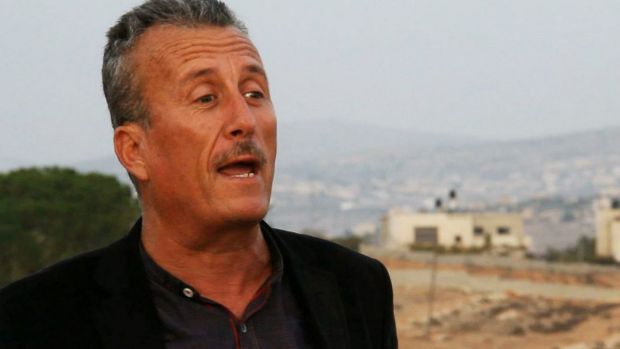And even the writer of the personal blog doesn’t think Bassem Tamimi should have had his visa revoked.
When the Department of Immigration cancelled the visa it had granted to Bassem Tamimi, it sent the Palestinian advocate three documents.
Two were official notifications that provided a brief, formal explanation for the department’s sudden reversal, deploying the kind of procedural, bureaucratic language you would expect in such correspondence. The third was a 2013 post from a blog entitled This Ongoing War, accusing Tamimi of living in a village of “monsters”.
Michael Jones, a Sydney-based solicitor and accredited migration law specialist, told Crikey he presumed the document was attached by the Department in order to meet a requirement to provide “particulars” in regards to the “information” used to justify the grounds of cancellation, most of which it is not compelled to disclose. Put another way, of all the evidence the department gathered when it was considering the case against Tamimi, this was the only part made accessible to his lawyers and advocates, and by extension the public.
According to Jones, it’s not very compelling evidence for the Department’s charge that Tamimi’s visit might provoke an “adverse reaction”.
The blog post itself focuses only passingly on Bassem Tamimi, spending most of its time criticising the New York Times Magazine for its depictionof the town of Nabi Saleh, and focusing on other figures in the village. It briefly attacks Tamimi for what the Times described as his “tactical” but not “moral” opposition to Palestinian armed resistance.
“For one thing, it is several years old, makes no mention of the proposed visit, and in particular says nothing about how any particular segment of the Australian community might react,” Jones said. “Besides that, it is far from being a balanced news report or commentary.”
Somewhat embarrassingly for the department, even the co-author of the blog post, Arnold Roth, told Crikey he would not have personally made the decision to ban Tamimi, albeit on tactical grounds.
“Personally, had I been asked, I would not have blocked Bassem Tamimi from visiting Australia,” Roth said. “From watching the outcomes of a coast-to-coast tour of the US that Amnesty International arranged for Bassem Tamimi in 2015, I think it was a disaster for him.”
Roth is an Australian-born Israeli who runs the blog with his wife Frimet. The project was started after their 15-year-old Melbourne-born daughter Malka Roth was killed by a suicide bomber at the Sbarro restaurant in Jerusalem, in 2001. The family is now campaigning to have an accomplice to the killing, Ahlam Tamimi, extradited from Jordan to face trial in the US.
While the Roths are highly suspicious of Bassem Tamimi, there is no suggestion he played any role in the bombing of the Sbarro restaurant. Tamimi’s advocates point to defences of his human rights credentials by Human Rights Watch, Amnesty International, and the European Union.
Despite his animosity towards the Tamimis, Roth told Crikey he had not realised his blog played any role in the visa drama, and that he had not lobbied anyone to prevent Tamimi from coming to Australia.
So how did the 2013 blog post come to the Department of Immigration’s attention?
One potential explanation is its strong following among the pro-Israel side of Australia’s Israel/Palestine debate, and among a smaller number on the Palestinian side.
Arnold Roth has a decades-long friendship with ardently pro-Israel MP Michael Danby, and the MP has blogged about the Roth family’s struggle to draw attention to their battle against Ahlam Tamimi. But Roth said he had not contacted Danby about the issue, and the MP couldn’t be reached for comment.
The Department of Immigration, for its part, did not respond to questions about how it had come into contact with the blog, whether it trusted the content of the blog, or why it had been included in the correspondence with Tamimi.
To lawyer Michael Jones, the incident highlights how the segment of Australian migration law invoked to overturn Tamimi’s visa on the basis of a possible risk to the “health, safety or good order of the Australian community” can potentially allow a “heckler’s veto” to prevent certain views being expressed.
“Unfortunately, it seems to have worked,” he said.
This article written by Max Chalmers and published in Crikey was provided to JMedia by Arnold Roth.

